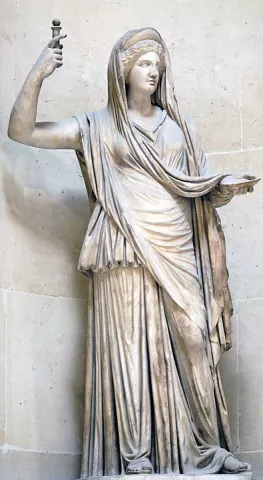By Marie-Lan Nguyen - Own work, Public Domain, Link

Hera is the queen of the Olympian gods in ancient Greek mythology, the wife and sister of Zeus. She is the goddess of marriage, women, childbirth, and family. Revered for her regal bearing and formidable presence, Hera was often depicted as majestic and solemn, crowned and seated on a throne. Despite her role as guardian of marital fidelity, myths often portray her as jealous and vengeful, particularly toward Zeus’s many lovers and their offspring. Hera’s symbols include the peacock, cow, and diadem, and she was worshiped widely across the Greek world, with major temples in Argos, Samos, and Olympia.
In Protopia, Hera serves as a contextual anchor for the Olympian order. Though she exerts little influence over the story’s events, her presence affirms the reality and reach of the Greek pantheon within the mythic frame. Hera does not evolve, challenge, or assist; instead, she offers breadth—reminding the reader that gods have their hierarchies too, and that Harmonia’s emergence takes place within a long-established divine tradition. Her role is atmospheric rather than thematic, giving depth to the stage without stepping into the spotlight.
